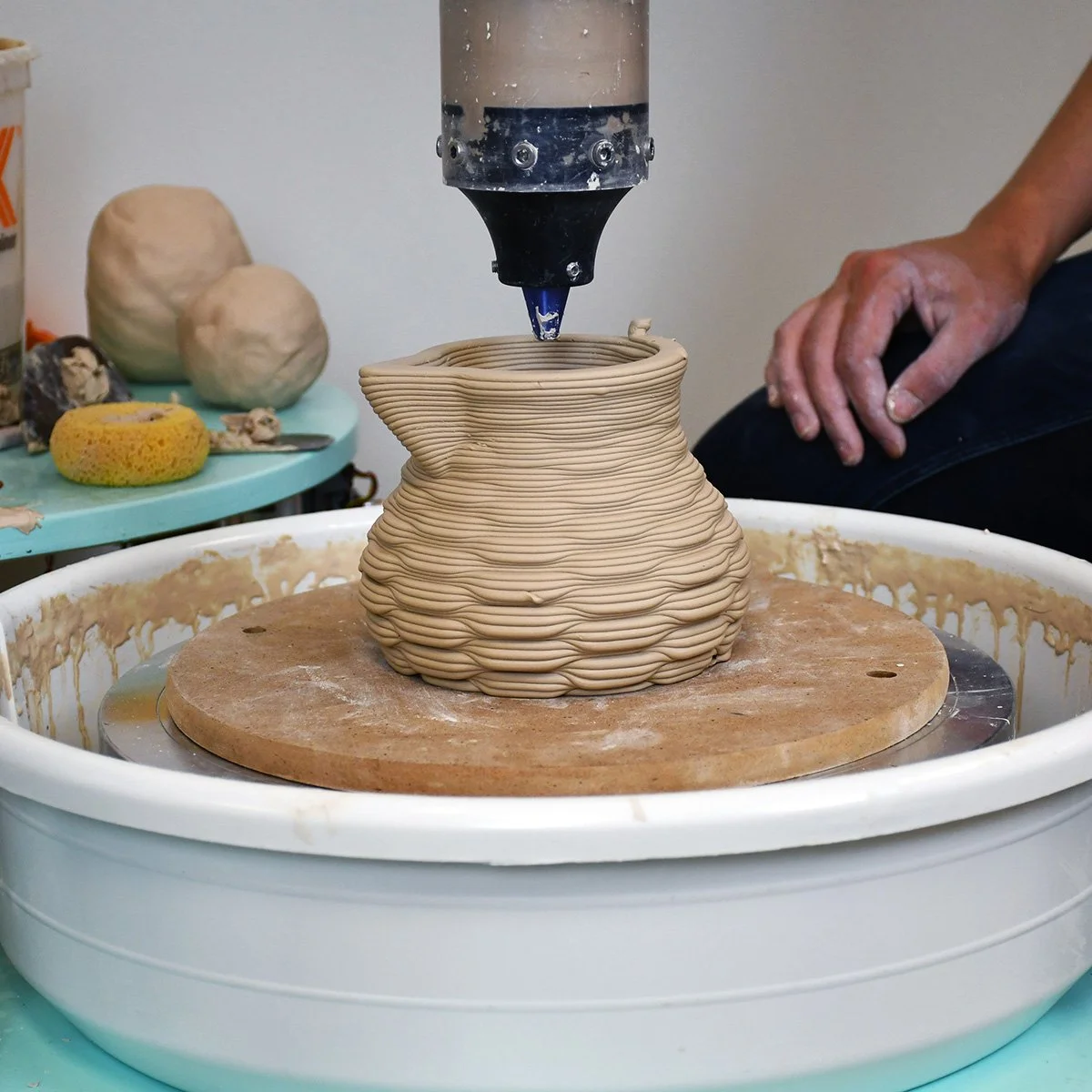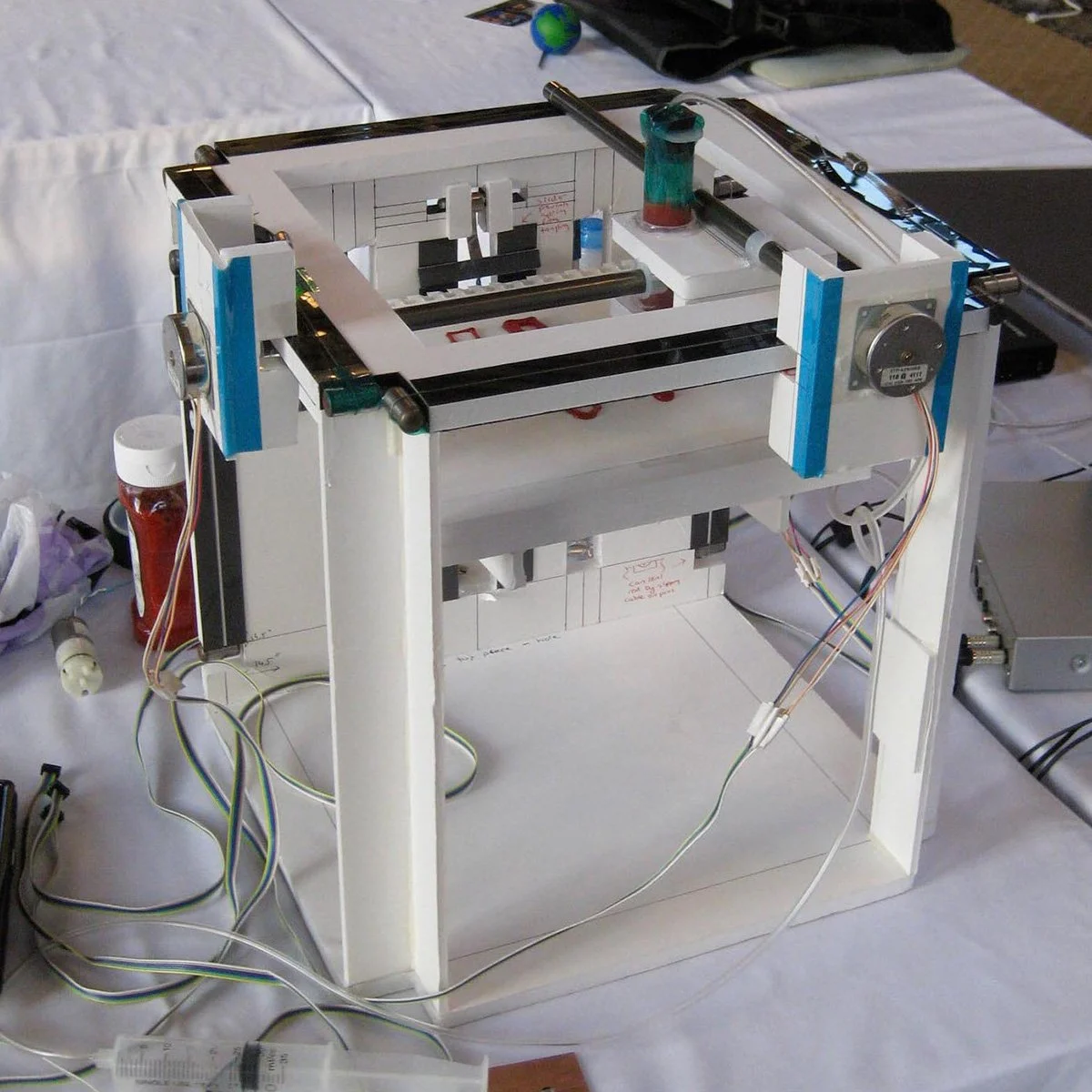Craft-Centered CNC Tool Design
Session 4 | July 27–August 8
3D printed vessel with the Digital Pottery Wheel by Jennifer Jacobs, 2024. Clay 3D printed vessel created with custom-built CNC. 4” x 4” x 3.5”.
Foamcore 3D Printer by Ilan Moyer, 2009. Foam core, delrin strips, steel shafts, and plastic.
Digital fabrication offers new opportunities for craft, but contemporary digital fabrication technologies reinforce industrial manufacturing conventions. Jennifer Jacob’s research lab seeks to support skilled craftspeople by reimagining digital fabrication machines as extensions of traditional craft tools with a focus on the domain of ceramics. Jacobs’s and Ilan Moyers’s work focuses on developing new clay 3D printing mechanisms that preserve the look and feel of manual pottery tools and new interfaces that allow potters to integrate automated fabrication with manual control. This work situates technologies in craft communities to co-design products and workflows that reflect a craft-centric vision of digital fabrication. During their residency, Jacobs and Moyer will share the work they create on campus, and at times during the two-week session, invite workshop participants to engage with these digital fabrication tools.
Jennifer Jacobs (she/her) is an Assistant Professor at the University of California Santa Barbara. She is the Director of Expressive Computation, a research lab investigating ways to support expressive computer-aided design, art, and craft by developing new tools that integrate computational creation with traditional practices. Jacobs received a PhD from the Massachusetts Institute of Technology's Media Lab and completed postdoctoral research in the Computer Science Department at Stanford University. Her work has been presented at international venues, including SIGGRAPH, UIST, Ars Electronica, and CHI. She is developing new clay 3D printing mechanisms that preserve the look and feel of manual pottery tools.
Ilan Moyer (he/him) is a PhD student at the Massachusetts Institute of Technology, where he develops digital fabrication tools that fit into traditionally skilled workflows. Previously, Ilan co-founded the digital power tool company Shaper, and researched empowering individuals to build their own bespoke CNC machines. He is especially interested in how mechanism design can enable new form-factors and ways of interacting with computer-assisted tools.


